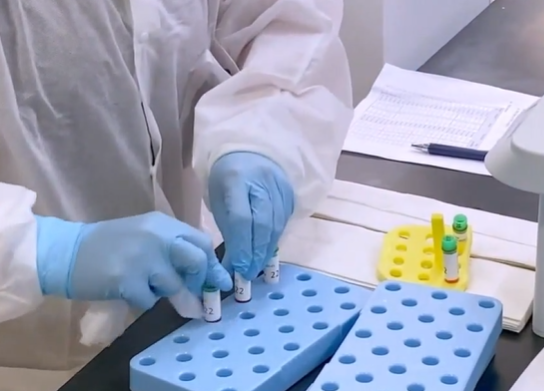INDIANAPOLIS — There are high hopes after the recent announcements of two successful COVID-19 Vaccines.
Pfizer now says their vaccine is 95% effective after first saying it was 90% effective. Modern says their vaccine is 94.5% effective. While this feels like the light at the end of a tunnel, doctors are cautioning that these vaccines do not mean life will get back to normal just yet.
"We've got a really rough winter to get through and these vaccines are not going to be a factor now, not for Thanksgiving, for Christmas," Dr. Stephen Sample, an Emergency Department Physician in Jasper, Indiana, said. "Anything we want to do over the next several months. This is still all up to us now."
Dr. Sample tells WRTV, there are a lot of logistical issues to work through before the vaccine will be made available to everyone.
"It's going to take time, we're looking at months. Everybody is not going to get it to start, [like] your average citizen watching TV, unless they're in a high risk population," Sample said.
More companies are going to have to produce effective vaccines to meet demand around the world especially since both of the successful vaccines will require two doses.
"If you think about it, 7 billion doses times two, so 14 billion doses. We're hoping others come up right behind them and start turning out vaccines as well," Dr. Sample said.
Some question the safety of the vaccines considering the timeline under which they have been made. Dr. Sample says they are safe. The sped up timeline is because of new technology used to create the vaccines, messenger RNA. "mRNA" consists of tiny snippets of genetic code that tells cells build proteins and are the key to unleashing the immune system.
"Your cells own machinery are going to pump out the protein that this mRNA codes and after that happens, your body recognizes and stimulates the immune response," Dr. Sample said.
As far as how we get the vaccine out to communities, Dr. Sample says it's going to be a huge effort considering the cold storage and shipped needed. He believes there's at least one group of people equipped to handle it.
"I think you're going to see a lot of National Guard Members, popping up clinics. I feel like that is a very efficient government way to distribute something. They just call up the soldiers because they're medics, doctors, and nurses scattered all through," Dr. Sample said.




